
Three children die in Gaza blaze
Geneva/Amman, 01 Sya’ban 1437/08 May 2016 (MINA) – The United Nations Special Committee to Investigate Israeli Practices Affecting the Human Rights of the Palestinian People and Other Arabs of the Occupied Territories met with a range of civil society organisations, UN representatives and Palestinian officials during their annual fact-finding visit to Amman (2-5 May 2016).
During the visit, representations were made on a wide range of issues affecting the Palestinian and Syrian people in territories occupied by Israel, worldbulletin.net, was quoted by Mi’raj Islamic News Agency (MINA) as reporting.
A large number of civil society organizations made representations about the escalation of violence that began in October 2015 in the West Bank, including East Jerusalem.
The Committee was briefed that during the escalation, several Palestinians have been killed during or after attacks on Israeli civilians or members of the security forces. Testimonies presented before the Special Committee in the form of videos, and oral and written submissions showed that in many cases the Israeli security forces have used disproportionate force, in some instances leading to possible extra-judicial executions.
Also Read: Three Killed, Several Injured in Ongoing Israeli Attacks Across Gaza
A related concern that was presented before the Committee is the lack of systematic investigation into cases of apparent excessive use of force by Israeli security forces. The importance of fully investigating all incidents where security forces have allegedly caused death or injury, and of holding those responsible to account was underscored.
Against this backdrop, and the lack of progress made on accountability in relation to the 2014 Gaza escalation, fears were expressed about what was described as, “the faulty justice system” in Israel, and the dilemma faced by some non-governmental organisations on whether or not to approach the existing Israeli justice system, civil or military, for redress.
Fears were also expressed that the separation of power between the judiciary and the executive was increasingly narrowing, potentially affecting the independence of the judiciary and the decisions of the courts in Israel.
The Committee noted with particular concern video footage of Israeli security forces blocking ambulances from reaching injured Palestinians in the West Bank, and at times attacking Palestinian medical personnel arriving on the scene of an incident to provide first aid, prima facie in contravention of customary international law and the basic principles of the Geneva Conventions (1949).
The Committee was further concerned to learn that around 70 dead bodies of Palestinians who were killed, since October 2015, in the context of alleged attacks on Israeli civilians or security forces were held by Israel for many weeks and months, denying the families a proper and dignified closure.
As of today, while many bodies have been returned to their families, it was further stated that the bodies of 18 Palestinians killed continue to be held by Israel. Representations were made that Israeli authorities have prohibited autopsies, and that the dead bodies are kept in poor and inhumane conditions, stacked on top of each other.
It was brought to the attention of the Committee that the bodies returned to the families are often disfigured, sometimes beyond recognition, denying the families the right to accord, with dignity, final religious rites.
The Committee was also briefed on the threats and intimidation faced by human rights defenders in the Occupied Palestinian Territory and in Israel.
Also Read: Israeli Soldiers Reveal Orders Allowing Killings of Palestinian Civilians During Gaza War
According to the representations, these intimidations and threats have taken different forms, including restrictions/denial of freedom of movement, threatening phone calls and emails, and death threats in extreme cases. Steps should be adopted to provide protection necessary for human rights defenders in Israel and the Occupied Palestinian Territory to carry out their work freely and without fear of attacks and harassment. In this regard, the need to fully investigate attacks and threats against human rights defenders, and to hold accountable those responsible, was stressed.
According to testimonies received by the Special Committee, Israeli authorities maintain a coercive environment as part of efforts to consolidate control of Area C in the West Bank. Representations made to the Committee expressed concerns over settler violence, and the demolition of Palestinian homes and structures.
Cases of destruction of donor funded structures in Area C were viewed as reprisal measures by Israel for steps adopted by the European Union to counter the sale of settlement products. The Committee members also heard testimony from a representative of a Bedouin community at risk of forcible transfer.
The Committee also heard about the negative impact of the occupation on children’s education in the West Bank including East Jerusalem, among others, as a result of frequent raids by Israeli security forces inside school premises during classroom hours, the arrest and detention of teachers and students, and the intimidating presence of soldiers on roads in close vicinity to schools, and at multiple checkpoints along the way to school.
Also Read: MER-C Volunteer Dr. Anthon Performs Oral Surgery at Gaza’s Baptist Hospital
Furthermore, the Committee was briefed about the exploitation of natural resources, including oil and gas, from the Occupied Palestinian Territory and the occupied Syrian Golan by Israeli and international companies, at the expense of rights of Palestinians and Syrians.
The Special Committee noted certain measures such as extension of access to sea in Gaza to 9 nautical miles, and a slight increase in movement of persons and goods, which could potentially have some positive impact on the daily lives of Palestinians living in Gaza.
Another development noted by civil society representations was the unsuccessful implementation of the controversial force feeding bill adopted by the Knesset last year due to refusal to cooperate by Israeli doctors and the Israeli Medical Association. It was underscored that despite these small improvements, the overall human rights situation in the Occupied Palestinian Territory and the occupied Syrian Golan was deteriorating. (T/R07/R01)
Mi’raj Islamic News Agency (MINA)
Also Read: Israeli Restrictions Still Blocking Aid to Gaza One Month Into Ceasefire






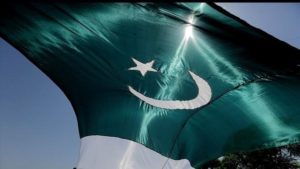
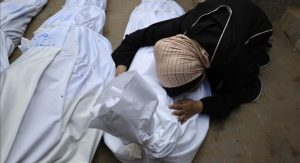
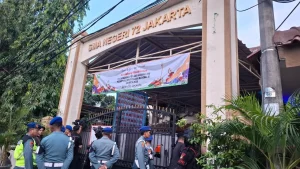
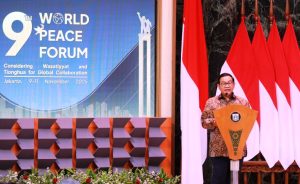


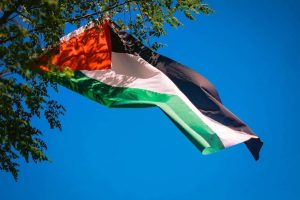
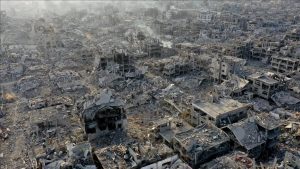

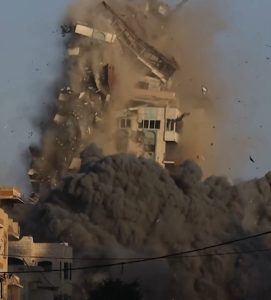
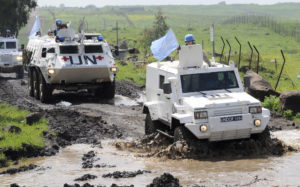
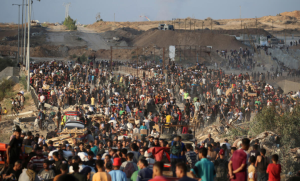










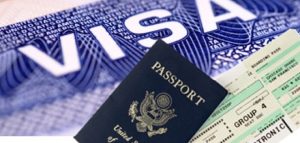



 Mina Indonesia
Mina Indonesia Mina Arabic
Mina Arabic